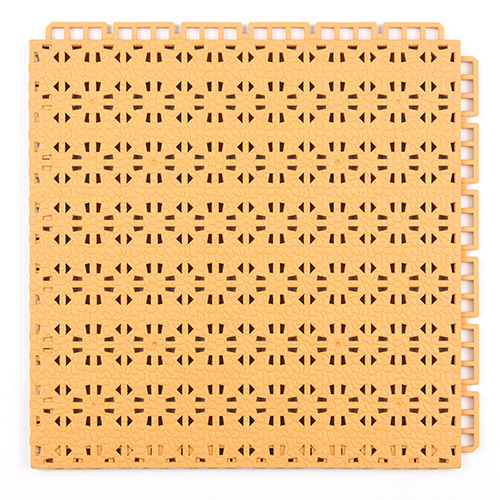1 月 . 28, 2025 01:19 Back to list
interlocking floor tiles price
Navigating the world of interlocking floor tiles can be an overwhelming experience given the diverse range of options and price points available. Understanding the intricacies of pricing, the diverse materials used, and how they align with your specific needs is crucial for making an informed purchasing decision. Here's an insightful dive into everything you need to know about interlocking floor tiles and their costs, backed by expert advice and trustworthy insights.
Trust in sourcing is pivotal. Purchase your tiles from reputable suppliers who specialize in flooring solutions. Trusted retailers and manufacturers often provide comprehensive product guides, installation tutorials, and customer support, ensuring a seamless buying experience. Checking customer reviews and testimonials can also offer peace of mind, providing insights into the real-life performance and durability of the tiles you’re considering. When calculating costs, factor in not just the price of the tiles but also any additional accessories that might be needed. Edge pieces, corner tiles, and transition strips contribute to a polished finish, while shipping fees can add to your overall expenditure, especially for bulk orders. When it comes to installation, interlocking tiles are generally designed for easy DIY applications, a factor often highlighted by professionals to save on labor costs. However, for large commercial installations or intricate design patterns, hiring a professional may ensure a perfect fit and aesthetic finish. This could increase your upfront costs but add significant value to the longevity and appearance of your floor. Finally, eco-conscious consumers should consider the environmental impact and sustainability of the materials used in the tiles. Increasingly, manufacturers offer eco-friendly options made from recycled materials, which might carry a slightly higher price tag but align with sustainable purchasing values. In conclusion, while the pricing of interlocking floor tiles varies based on materials, application, and quality, making a well-informed decision requires balancing cost with durability, ease of installation, and aesthetic preferences. By considering both short-term expenditures and long-term value, you can choose the right tiles to enhance any space effectively and efficiently. A process underscored by an understanding of the product's real-world application, expert-recommended practices, and trusting in reputable suppliers sets the stage for a smart investment in interlocking floor tiles.


Trust in sourcing is pivotal. Purchase your tiles from reputable suppliers who specialize in flooring solutions. Trusted retailers and manufacturers often provide comprehensive product guides, installation tutorials, and customer support, ensuring a seamless buying experience. Checking customer reviews and testimonials can also offer peace of mind, providing insights into the real-life performance and durability of the tiles you’re considering. When calculating costs, factor in not just the price of the tiles but also any additional accessories that might be needed. Edge pieces, corner tiles, and transition strips contribute to a polished finish, while shipping fees can add to your overall expenditure, especially for bulk orders. When it comes to installation, interlocking tiles are generally designed for easy DIY applications, a factor often highlighted by professionals to save on labor costs. However, for large commercial installations or intricate design patterns, hiring a professional may ensure a perfect fit and aesthetic finish. This could increase your upfront costs but add significant value to the longevity and appearance of your floor. Finally, eco-conscious consumers should consider the environmental impact and sustainability of the materials used in the tiles. Increasingly, manufacturers offer eco-friendly options made from recycled materials, which might carry a slightly higher price tag but align with sustainable purchasing values. In conclusion, while the pricing of interlocking floor tiles varies based on materials, application, and quality, making a well-informed decision requires balancing cost with durability, ease of installation, and aesthetic preferences. By considering both short-term expenditures and long-term value, you can choose the right tiles to enhance any space effectively and efficiently. A process underscored by an understanding of the product's real-world application, expert-recommended practices, and trusting in reputable suppliers sets the stage for a smart investment in interlocking floor tiles.
Share:
Next:
Latest news
-
Custom Pickleball Court Solutions Convert Tennis & Indoor Builds
NewsMay.30,2025
-
Outdoor Pickleball Court Costs Build & Install Pricing Guide
NewsMay.30,2025
-
Premium Pickleball Sports Courts Custom Design & Installation
NewsMay.30,2025
-
Indoor Pickleball Courts Tennis Court Conversion & Custom Builds Tempe
NewsMay.29,2025
-
Professional Pickleball Court Installation & Tennis Court Conversions
NewsMay.29,2025
-
Grey Synthetic surface-rubber prefabricated track
NewsMar.07,2025

